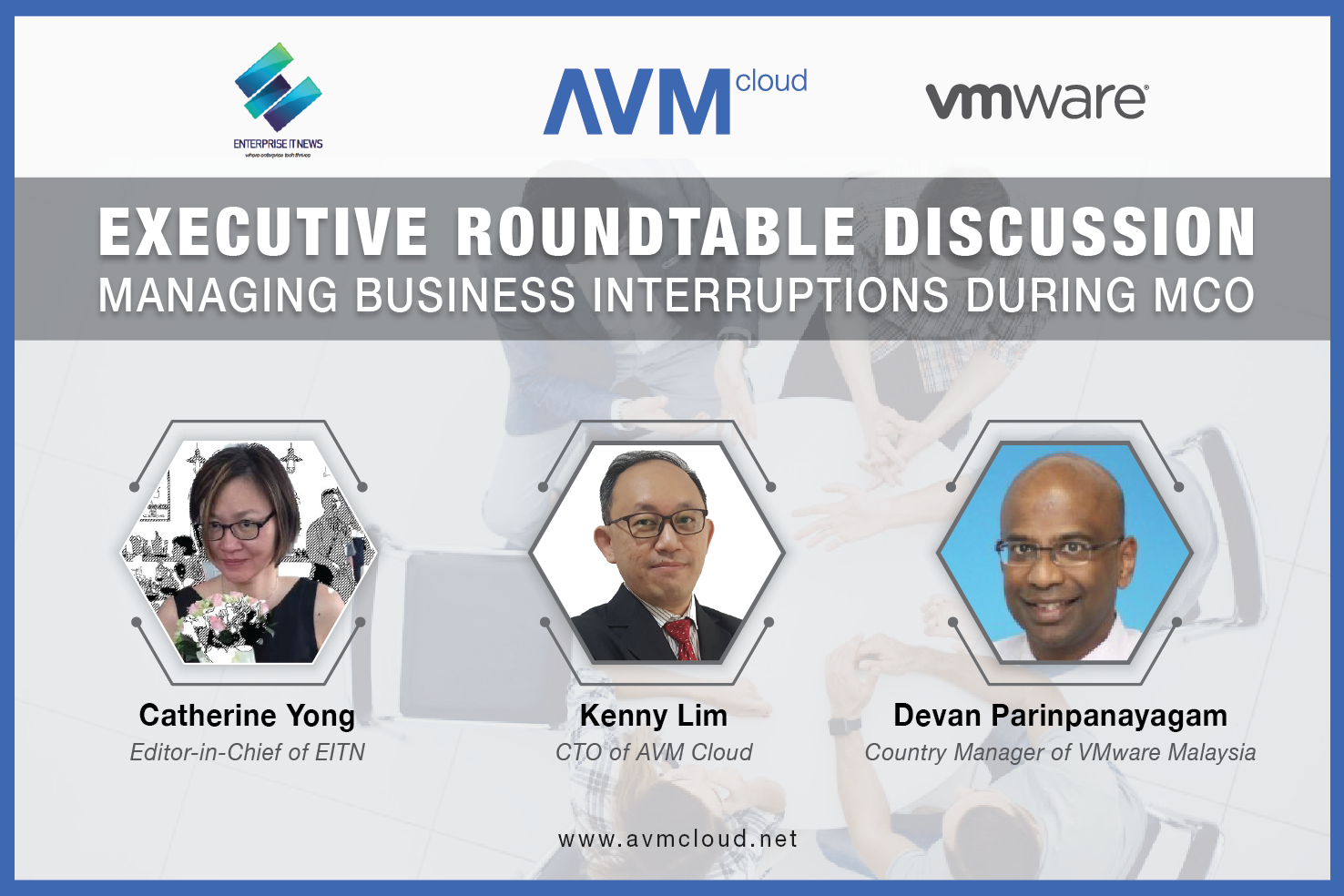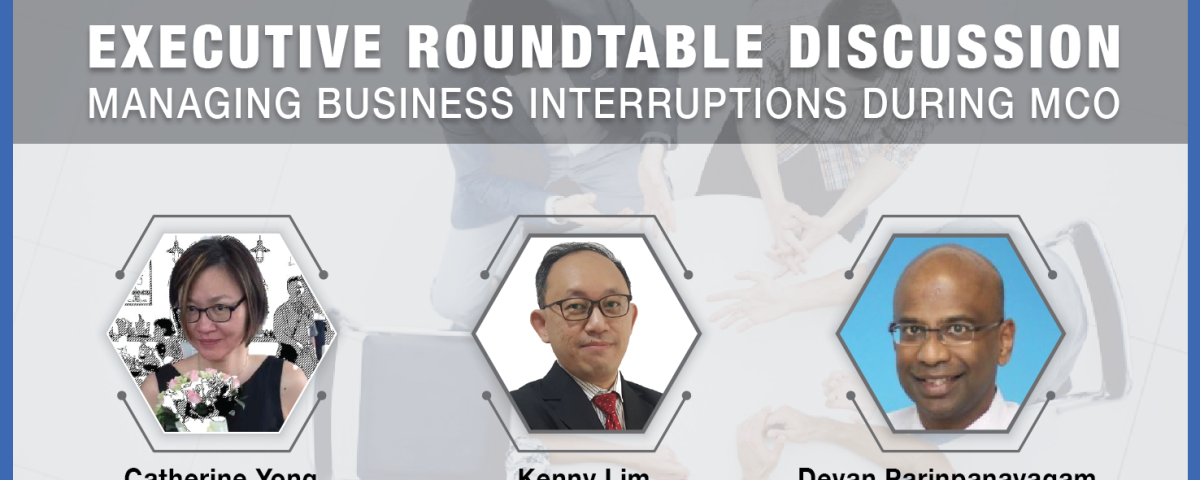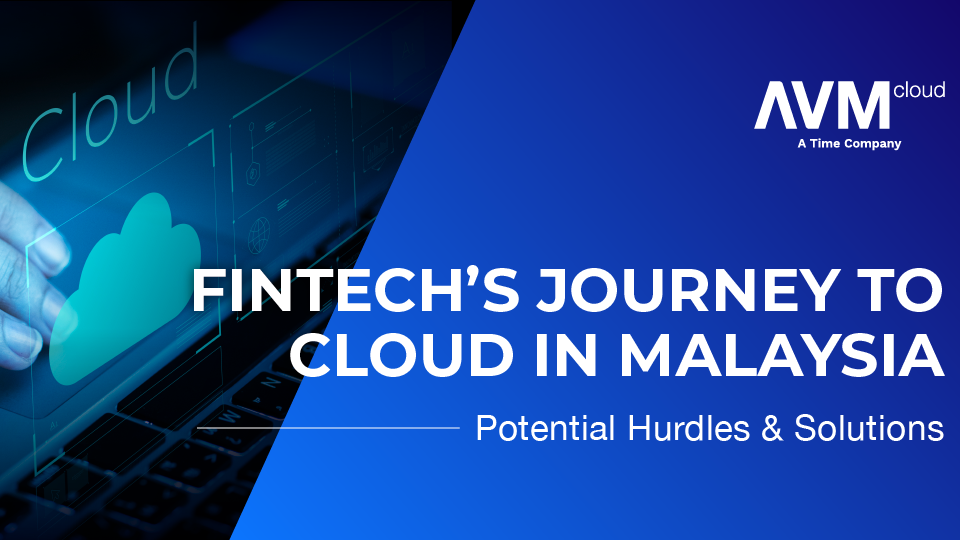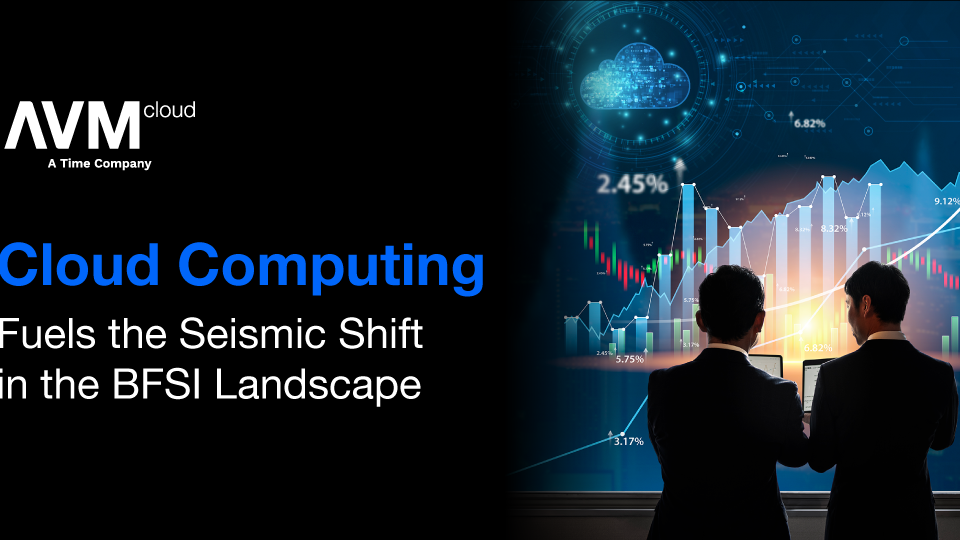
AVM Cloud and VMware recently organised an online executive roundtable for technology leaders from the essential services sectors like media, retail food, retail grocery, banking, and even energy.
The objective?
To facilitate experience sharing of how we all used to work before the pandemic, how we work during the pandemic and how we plan to continue to work after the crisis settles into a new normal.
In fact, AVM Cloud’s CTO Kenny Lim shared that for the past month, they have been shifting servers into their data centres. Kenny said this is to accommodate a lot of unexpected and unprecedented demand for computing power currently.
VMware’s Malaysia country manager, Devan Parinpayanagam also described,
“COVID-19 is unprecedented. The one big issue is how to adjust to working (productively, securely and seamlessly) from home, both for the individual and the organisation.
”From having the right device, to having sufficient connectivity or bandwidth, to making sure that all communications and data movement is secure, and so on.
“These are the areas that in most cases, none of us have addressed at the scale that we are going through today. None of us have addressed at the scale that we are going through today.”
Enterprise IT News’ Editor-in-Chief, Catherine Yong moderated the hour-long online discussion.
IT Preparedness
In Malaysia, essential services had been identified to keep their respective operations running. As a result, food retail, retail grocery, energy, and even media were expected to keep delivering products, goods, and services despite the MCO.
Almost all participants to the roundtable had been ready with business continuity plans (BCP) , leveraging virtualisation technology and cloud subscriptions to more computing resources.
There was one unexpected variable for most companies’ BCP plans however.
QSR’s Group CIO, CK Chong admitted business continuity plans for most businesses would have involved ensuring physical sites like offices remain intact and operational.
But the MCO had meant employees not being able to go to office as they usually do before the MCO. “This key lesson will drive my IT policies moving forward, which is 100-percent laptops for employees where possible, with cloud-services being the only access point that we provision,” CK said.
A majority of the webinar participants also attested to the benefits of virtualisation technology. For instance, virtual desktop capability for HR and finance means they can conveniently and securely access systems and data which are secure behind corporate firewalls, from their homes.
Website traffic for media, retail food and retail groceries also increased exponentially. Sin Chew Media Group saw an increased spike in visitors to their news website whenever there was an announcement about the MCO.
Malik Murad Ali, IT Director from Mydin shared, “Here’s an example of what AVM Cloud did for me, when my e-commerce (utilisation) went boom, my delivery slots were filling up and traffic was through the roof.”
According to Malik, AVM Cloud had responded by putting Mydin on better storage technology, so that their e-commerce platform would keep up with the surge in usage.
He said, “At that point, I didn’t want headaches, I wanted solutions, and I got it.”
What is the New Normal?
There was general consensus that digital adoption has accelerated because of the coronavirus. For example, collaboration platforms like Teams and Workplace is frequently used now by participants’ organisations.
But while office tools and collaborations are changing, operations seems to still be business-as-usual for a few.
According to Malakoff’s IT Head, Simon Cham, Malakoff’s staff was well-prepared to work from home with mobile machines, VPNs, digital signatures and even cloud access to applications. However, there is no way that power plant workers can work remotely.
This is not the case for operations in other industries like retail food and groceries.
The general perception right now is that for the long-term, everyone has to always practice physical distancing and wear personal protective gear like masks.
The pandemic has impact upon food retail businesses and CK shared that his organisation would have to review omni-channel strategies.
“That warrants us to review our digital priorities, and moving forward we will expedite digital channels that matters most for our customers, such as digital ordering, deliveries and contactless experience.”
The right balance
Overall, all the IT heads during the roundtable had shared about their organisations’ requirements to keep working throughout the MCO. Each had put a lot of thought into how to keep workers working in a secure and productive way, and without doubt, technology plays an important role.
Even if a business’s operations isn’t how it used to be ie. no more dine-in at restaurants, a business’s corporate functions like HR, payroll, finance, procurement, and so on, still need to carry on. Therefore, secure access to these corporate systems that usually sit on office premises, has to be provided to personnel who are working from home.
Kenny shared that investment into computing capacity is something they have done over the years, and as a result, within a short span of time AVM Cloud was able to accommodate the sharp rise in computing demand, and even start initiatives like 2 free licenses for virtual desktops, for some SMEs.
“At least this may help them some businesses turn things around,” he explained while adding that AVM Cloud as a company wants to see how it can help SMEs as well as long-term customers.
To find out more about the Digital Workspace, AVM Cloud can be reached at marketing@igsb.com.my.





